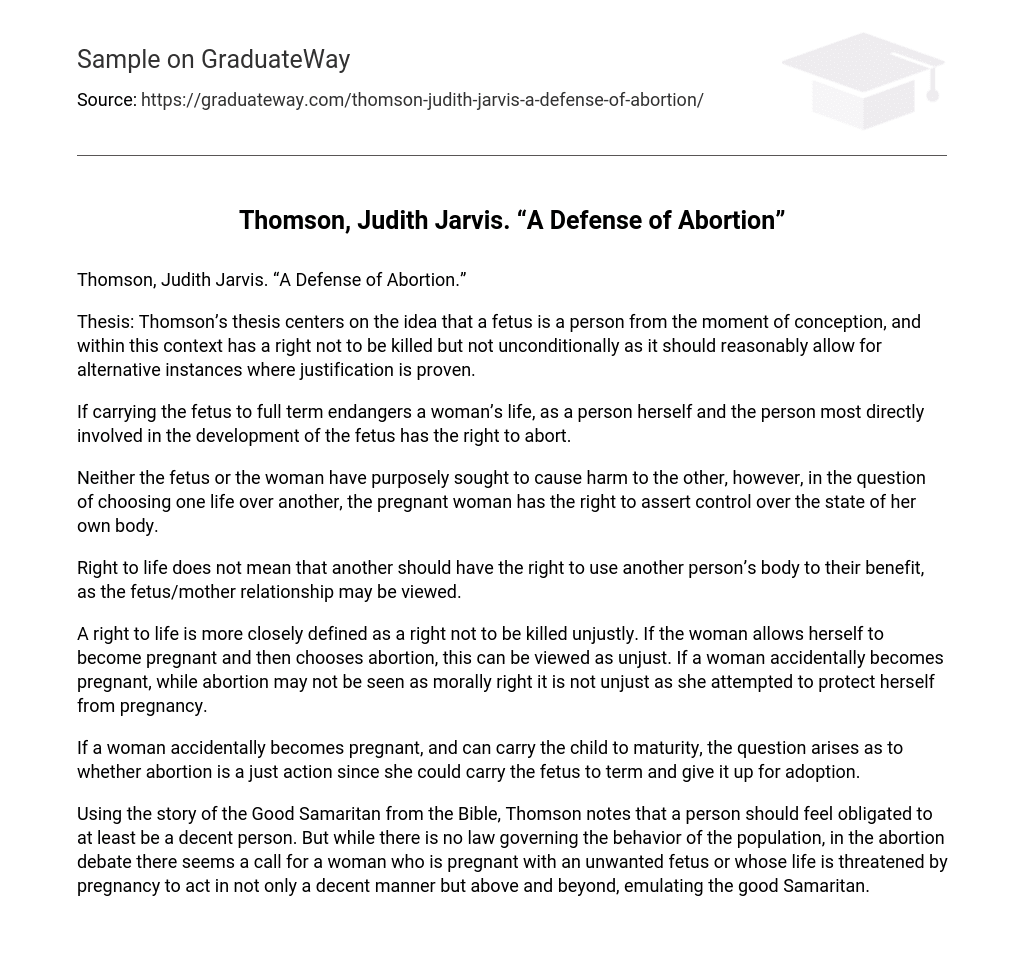Thomson’s thesis centers on the idea that a fetus is a person from the moment of conception, and within this context has a right not to be killed but not unconditionally as it should reasonably allow for alternative instances where justification is proven. If carrying the fetus to full term endangers a woman’s life, as a person herself and the person most directly involved in the development of the fetus has the right to abort.
Neither the fetus or the woman have purposely sought to cause harm to the other, however, in the question of choosing one life over another, the pregnant woman has the right to assert control over the state of her own body. Right to life does not mean that another should have the right to use another person’s body to their benefit, as the fetus/mother relationship may be viewed.
A right to life is more closely defined as a right not to be killed unjustly. If the woman allows herself to become pregnant and then chooses abortion, this can be viewed as unjust. If a woman accidentally becomes pregnant, while abortion may not be seen as morally right it is not unjust as she attempted to protect herself from pregnancy. If a woman accidentally becomes pregnant, and can carry the child to maturity, the question arises as to whether abortion is a just action since she could carry the fetus to term and give it up for adoption.
Using the story of the Good Samaritan from the Bible, Thomson notes that a person should feel obligated to at least be a decent person. But while there is no law governing the behavior of the population, in the abortion debate there seems a call for a woman who is pregnant with an unwanted fetus or whose life is threatened by pregnancy to act in not only a decent manner but above and beyond, emulating the good Samaritan.





